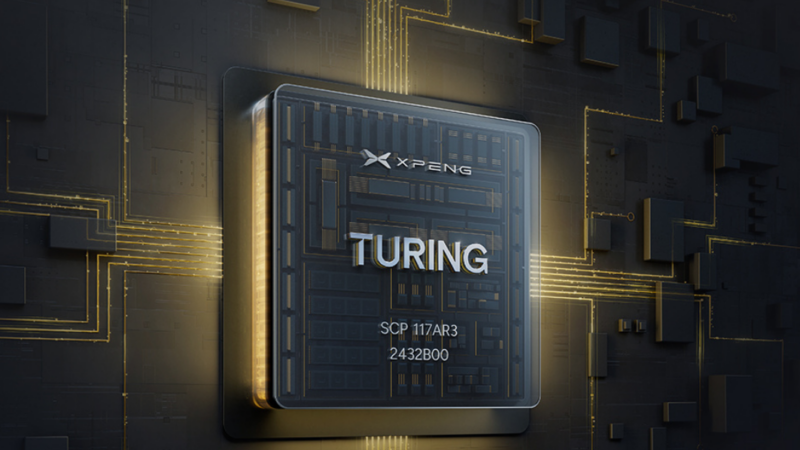Xpeng to debut G7 SUV with its in-house AI chip, promising unprecedented computing power
Xpeng is set to unveil its highly anticipated G7 mid-size SUV tonight, a vehicle poised to redefine the intelligent electric vehicle landscape. A key highlight of the G7 is its integration of three self-developed Xpeng Turing AI chips, a move that significantly boosts the vehicle’s autonomous driving and intelligent cockpit capabilities. This marks a pivotal moment for Xpeng as it aims to reduce reliance on third-party semiconductor giants and solidify its position as an AI-driven automotive innovator.
The Turing AI chip, developed internally by Xpeng, is engineered specifically for AI applications. It features a 40-core processor and is capable of locally running large AI models with 30 billion parameters. The chip integrates two Neural Processing Units (NPUs) and a specialized architecture optimized for neural networks.
With a staggering single-chip computing power of 750 TOPS (Tera Operations Per Second), the Turing chip is touted as a “computing power ceiling.” To put this into perspective, one Turing chip is equivalent to three Nvidia Orin X chips, which each offer 254 TOPS. This deep customization allows for 100% utilization of the Turing chip’s computing power.

The G7 will be the first vehicle to be equipped with Xpeng’s self-developed chips, utilizing three Turing chips simultaneously, resulting in a total computing power of 2250 TOPS. This makes the G7 a leader in electric vehicle computing power.
Xpeng Chairman He Xiaopeng emphasized that the G7 is the first “AI car” to feature L3-level computing power, combining “hardcore technology with spacious comfort.” The company began development of the Turing chip in 2020, with successful tape-out in August of last year.
Beyond its impressive specifications, the Turing chip’s design is optimized for end-to-end large models prevalent in modern Advanced Driver-Assistance Systems (ADAS) architectures. Xpeng claims a 20% higher utilization rate compared to general-purpose high-compute automotive chips. The chip also includes an independent safety island and dual independent Image Signal Processors (ISPs) to enhance perception in challenging conditions.

Xpeng’s accelerated push for its own silicon comes amid reported challenges with Nvidia’s Thor chip rollout, allowing Xpeng to gain crucial control over its product roadmap and mitigate potential supply chain disruptions. This hardware advancement aligns with Xpeng’s ambitious software strategy, which centers around large AI models. The company is developing a “World Foundational Model” and plans to deploy optimized, smaller models onto the vehicle’s Turing chip using knowledge distillation techniques.
Xpeng’s ambitions extend beyond passenger cars, with plans to utilize the Turing chip in future AI-powered robots and flying cars. The company is targeting the initial commercialization of L3 autonomous driving in the second half of this year, with explorations into L4 planned for 2026.
In an unexpected turn of events last night, a Turing chip intended for display at the exhibition mysteriously disappeared, believed to have been stolen. While the value of the chip may not warrant criminal charges, Xpeng has stated it will thoroughly investigate the incident.

The G7, a mid-size SUV measuring 4892mm in length, 1925mm in width, and 1655mm in height, with a wheelbase of 2890mm, is designed to emphasize intelligence and spaciousness. It will also debut the “Chasing Light Panorama AR-HUD,” developed in collaboration with Huawei, which integrates Huawei’s hardware with Xpeng’s software for enhanced navigation and driving assistance.
The G7 is expected to be priced around 250,000 yuan (36,000 USD) and will compete with models such as the Tesla Model Y, Xiaomi SU7, and Zeekr 7X. Pre-sales for the G7 are set to begin tonight, with deliveries planned for the third quarter of 2025.



